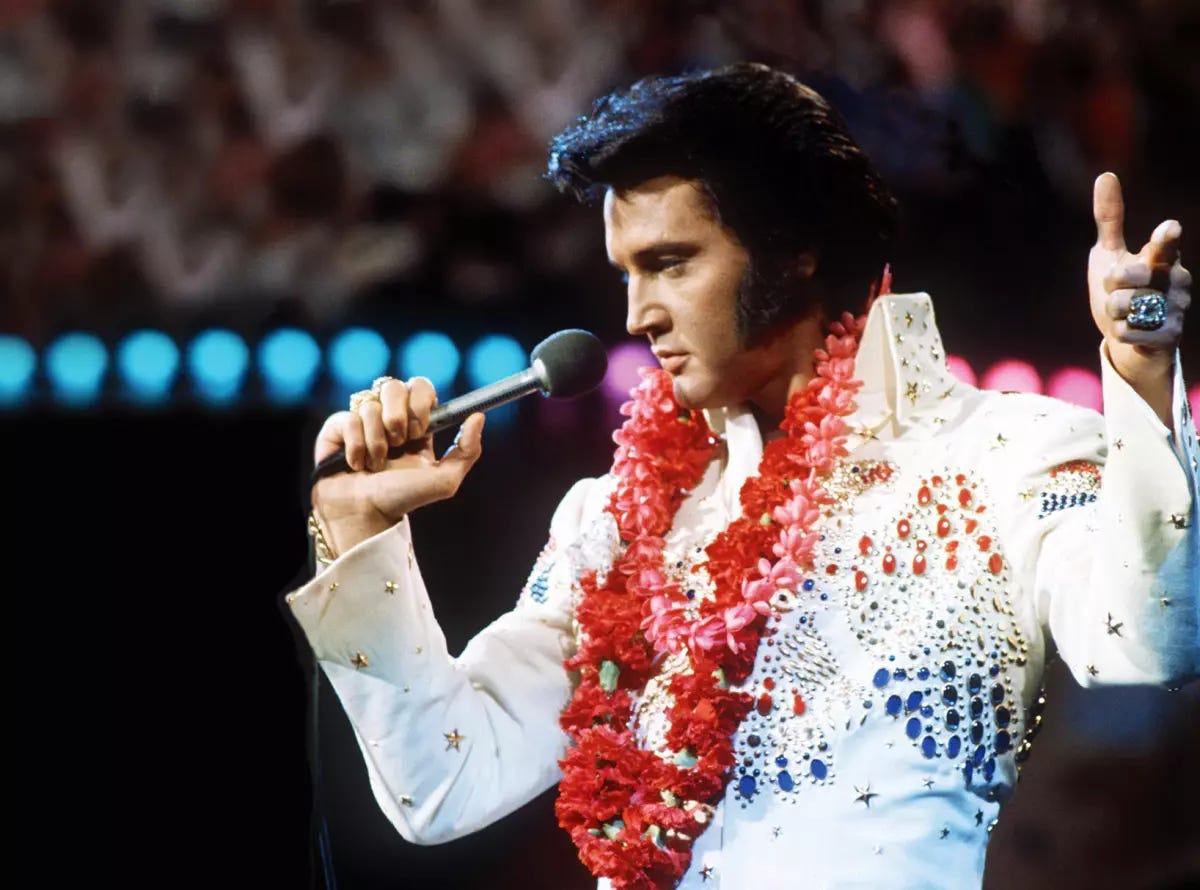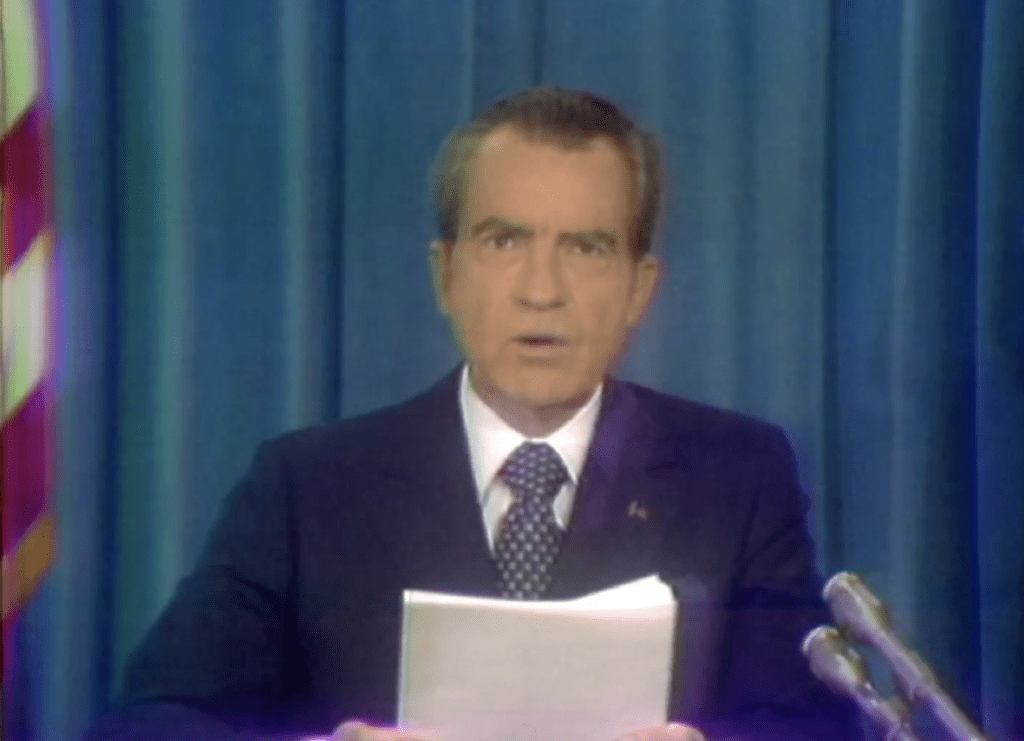January 1973, the headlines inside the chapter
Elvis on the telly, Roe on the page, a river town listening
At the library desk in Wagga, Christian smooths the paper and copies lines into his notebook. The month around him is turning fast. Below is the real history threaded through the scenes, with what happened and why it colours the chapter’s mood.
14 January 1973 ~ Elvis by satellite
What happened: Aloha from Hawaii via Satellite aired across Asia and Oceania in mid-January. Households like Christian’s gathered in lounge rooms to watch a global pop event in real time, often on black-and-white sets, with aerials that ghosted and flickered.
Why it matters here: It pins the lounge room to a specific week. Wayne’s gruff commentary and Maggie watching from the kitchen feel true to a night when even people who did not care about Elvis still watched because everyone else was watching.
22 January 1973 ~ Roe v. Wade
What happened: The United States Supreme Court ruled that abortion restrictions violating a constitutional right to privacy were unlawful. Newspapers around the world ran headlines, photos of crowds, and quotes about choice, autonomy, and privacy.
Why it matters here: Christian copies a line about the right to be left alone, the sort of phrase many papers used when explaining the ruling. It resonates with his interior wish to be unharmed, unseen, and free to make choices about his own body and future, even if he does not have language for that yet.
Read Roe v Wade
Late January 1973 ~ “America to Exit Vietnam by Month’s End”
What happened: The Paris Peace Accords were signed in the final days of January, setting the terms for a ceasefire and the withdrawal of U.S. forces. Australian involvement in hostilities had effectively wound down already, but the news of American departure dominated front pages and radio bulletins.
Why it matters here: In a garrison town beside Kapooka, uniforms, haircuts, and strict bearing sit in the background of daily life. The headline he pockets is not abstract politics. It changes which stories adults tell at the river and in the pub, and it shifts what a boy hears about duty, fear, and what comes next.
Read Nixon Announces “Peace with Honor” and the End of the Vietnam War
Pop culture in the air
Johnny Farnham on the radio: “Rock Me Baby” had been a local radio staple through 1972 and would still be spinning through that hot summer.
Why it matters here: The tinny chorus from a nearby set helps place the year and gives the street its hum. It is ordinary and that ordinariness is the point.
Technology and timing
Black and white television: Australia would not switch to colour until 1975.
Why it matters here: The family is not watching a bright spectacle. They are watching a shimmering ghost in grey and white. It lends the scene its slightly distant, slightly unreal quality, even as the fan squeaks and the beer sweats on Wayne’s belly.
How the news reached him
The Daily Advertiser: Wagga’s regional paper is exactly the masthead that would carry wire copy about Roe and the Paris talks, plus a wrap of the Elvis broadcast.
Why it matters here: Christian’s habit of clipping headlines and copying lines fits small-city reading rituals. You do not need a capital city to feel plugged into the world. You need a library desk, a pencil, and a boy who pays attention.
Why these headlines deepen the story
Each item adds pressure to the heat that already sits on Christian’s skin. The concert crowds say the world is louder than his house. The legal language of privacy gives him a phrase he cannot yet own, but wants to. The war news explains the soldier’s watchful posture at the river and the feeling that something is ending, even if the town keeps moving slowly under the sun.






